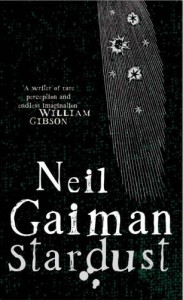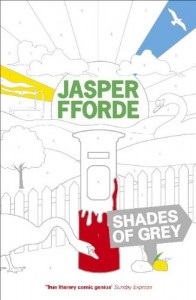I purchased A Discovery of Witches for the Kindle last summer on the strength of a recommendation from a friend, and started the book while in hospital having labour induced at the end of August. I read around half before we were allowed home (mostly while waiting for the pills to take effect). Once we got home I had other things to read and since I hadn’t been entirely enthused I forgot all about A Discovery of Witches. Until about a month ago, when something brought it to mind and I decided I might as well finish the thing. So I did, and immediately purchased Shadow of Night and read that, too and then cursed because the final installment of the trilogy is not out yet. You could say I got more caught up in it now that I was then.
So why did I not care too much for it in August? Well, in a word: Vampires. I’ve never been a big fan, and the whole Twilight thing with sparkly vampires and abusive or at least unhealthy relationships has ruined what little interest I might once have shown. Not that I’ve read (or seen) Twilight, it just feels like I have because of the barrage of information about it from both fans and critics. Anyway, Matthew is, if not exactly sparkly, a little too shiny in the first half of the first book. Besides, the ‘tall, dark and handsome with a troubling past but a heart of gold’ thing is really not very inventive.
However, Diana, her untried and unpredictable powers and her penchant for history eventually hooked me, despite rather than because of the relationship with Matthew. Besides, the novel is teeming with interesting ‘supporting actors’. And yes, of course I am curious to see how it all ties together at the end – I sure hope it does.
Shadow of Night is the more interesting book if you’re into history, as Diana and Matthew go back to Elisabethan London. Harkness obviously knows her stuff, though she wreaks havoc with several real historical characters’ reputations (and that’s part of the fun). Having Kit Marlowe as a deamon makes perfect sense, for example. The tiny little historical details are the best, though, and I vastly enjoyed that part of the story.
However, and there is a big However – or more accurately: Several of them.
I still don’t feel engaged in the love story. I’m engaged in Diana’s happiness, so have to accept that Matthew may be part of that, but it’s a bit like seeing you best friend fall for a douchebag: A big part of me wants her to snap out of it (though I realise that’s an unlikely outcome considering the rest of the plot). That’s one big However.
The other, which is less of a narrative problem and more of a ‘perhaps this is too close to Twilight after all’ sort of social issue is that there really are some major skeletons in Matthew’s and the de Claremonts’ closets. Really major. There’s more than a bit of ‘I used to be a bad boy but you changed me’ meme going on. I don’t like it. It may be elegantly resolved in the third book, so I will suspend judgement.
So will I buy the third book the moment it is out? Probably. And then I’ll get back to you. In the meantime: If you like vampires that are almost sparkly, you might want to check this out, if not, this is probably not the book for you. I’m not sure it’s the book for me.
Ps. Bøkene gis ut på norsk av Pax, oversatt av Elisabet W. og Marius Middelthon. De to første har fått titlene Alle sjelers natt og Nattens skygge.

